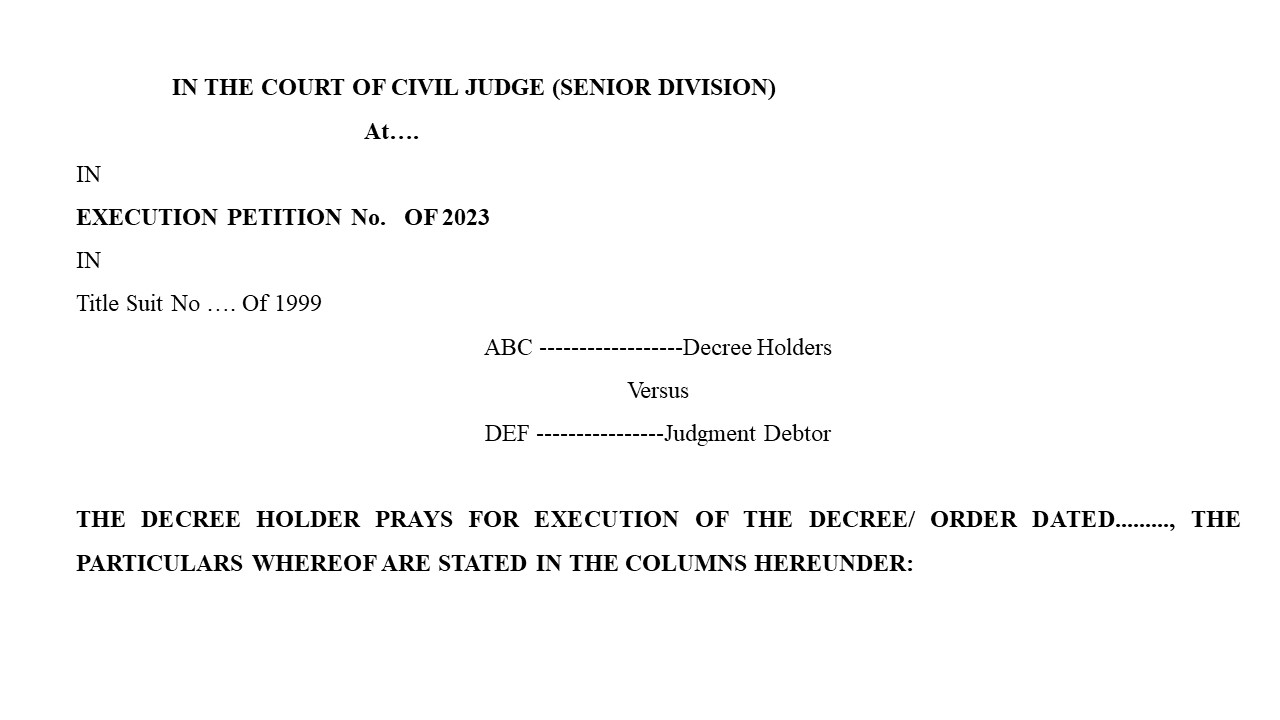Reviews
M.R.P. : ₹ 127.44
(Inclusive of all taxes)
Details
- An execution petition by a decree holder is a legal process under the Civil Procedure Code (CPC) of 1908 in India. It is a formal request made by the person who has obtained a decree from a civil court to enforce or execute that decree. The purpose of this petition is to seek the court's assistance in enforcing the judgment and obtaining the remedies ordered by the court, such as the recovery of money, delivery of property, or any other relief granted in the decree. Here are the key points to understand about an execution petition by a decree holder as per the Civil Procedure Code of 1908: Decree Holder: The person who has been granted a decree by the court is referred to as the "decree holder." The decree holder is the one who initiates the execution process. Decree: A "decree" is the formal judgment or order issued by a civil court that specifies the rights and liabilities of the parties involved in a civil suit. The execution petition is used to enforce the provisions of this decree. Purpose of Execution Petition: The execution petition is filed by the decree holder to request the court's assistance in executing the decree. This typically involves actions like the recovery of a specific sum of money, delivery of possession of property, attachment and sale of property, or any other remedy granted by the court. Contents of Execution Petition: The execution petition should provide details of the decree, including the court that issued the decree, the names of the parties, the date of the decree, and the specific relief granted in the decree. It should also state the grounds for seeking execution, such as non-compliance by the judgment debtor (the person against whom the decree was issued). Procedure: Once the execution petition is filed, the court will issue notice to the judgment debtor, giving them an opportunity to respond. The judgment debtor can raise objections to the execution, such as challenging the decree's validity or disputing the amount owed. Execution Methods: The court has various methods for executing the decree, depending on the nature of the relief sought. These methods may include attachment and sale of property, arrest and detention, garnishee orders (for attachment of debts), and other appropriate measures. Appeals: If the judgment debtor or the decree holder is dissatisfied with the execution order, they can appeal the decision to higher courts as provided under the CPC.
